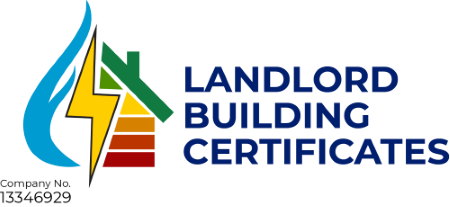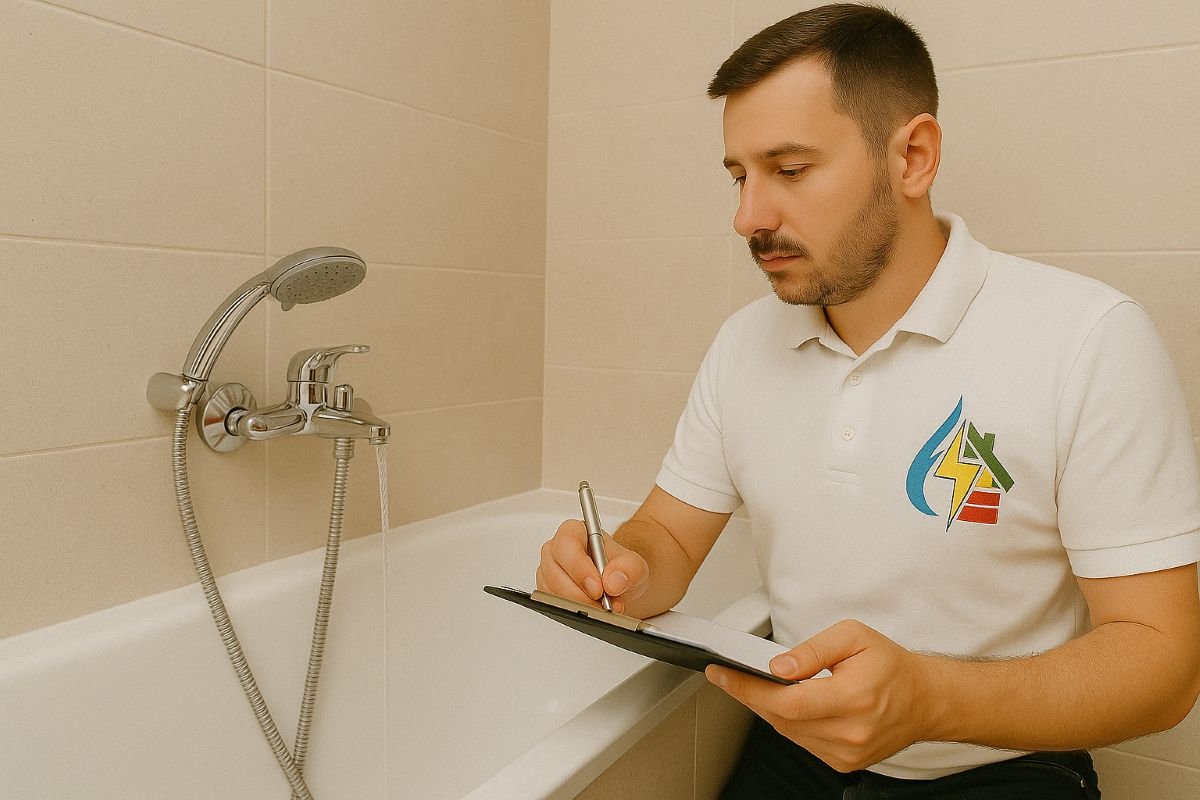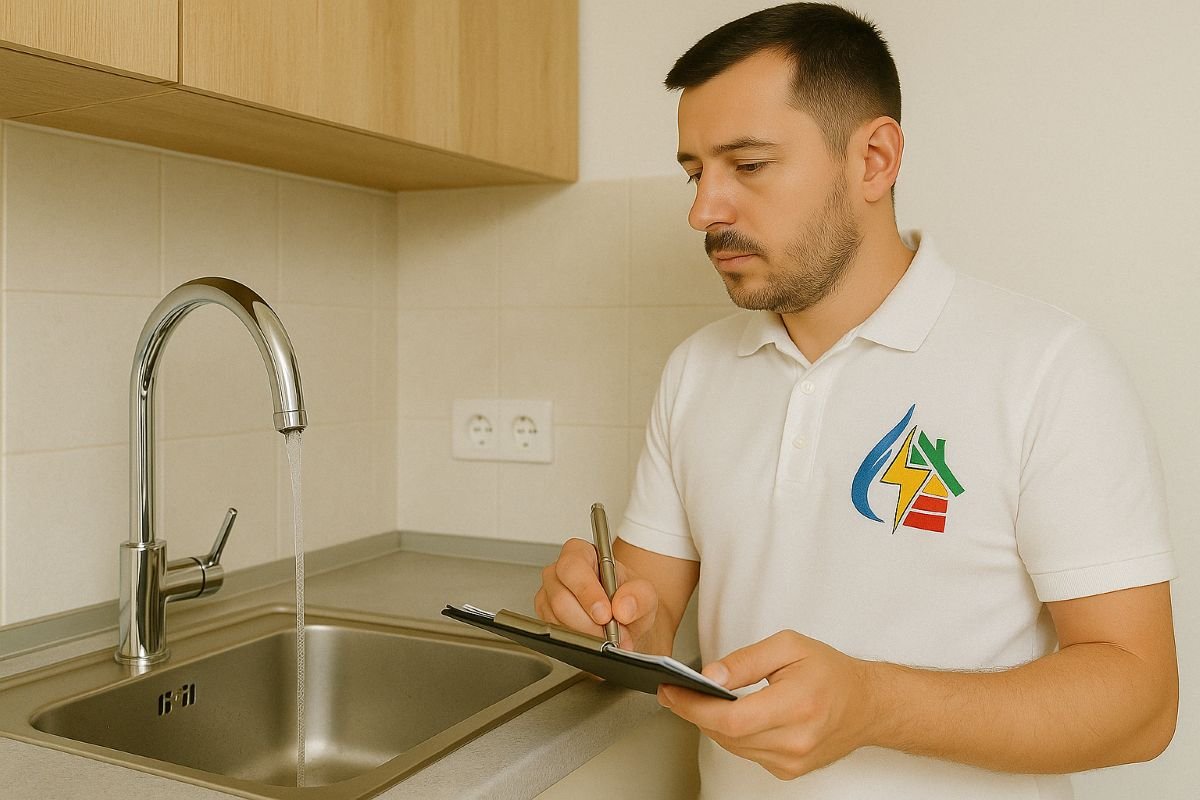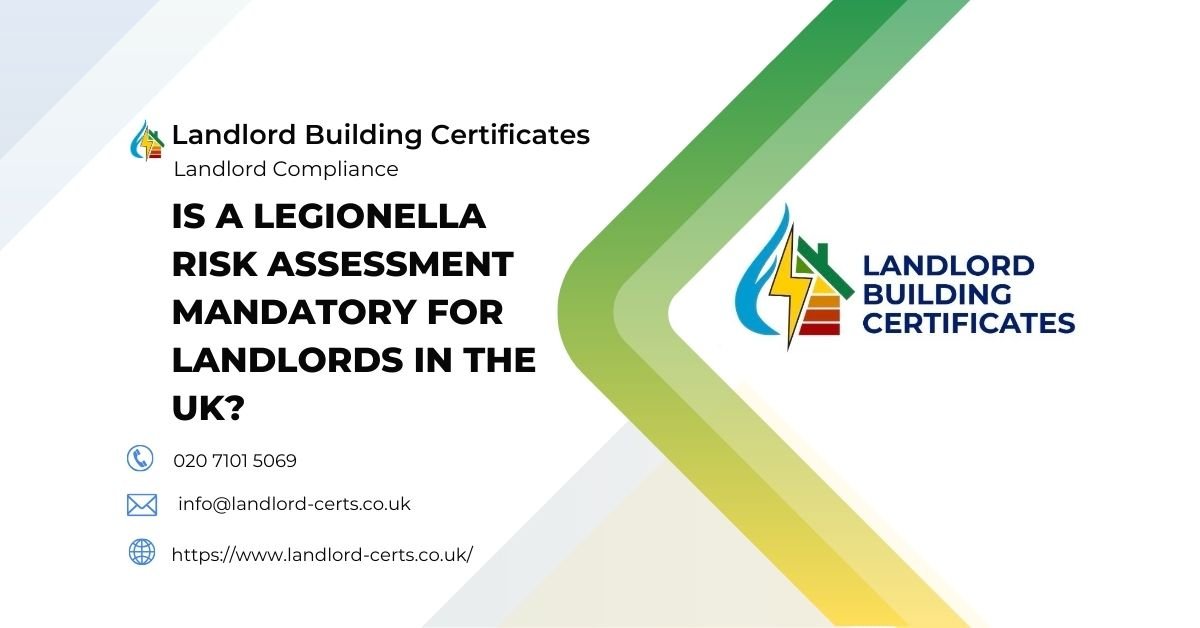Do landlords have a legal duty to carry out a Legionella risk assessment?
Yes, landlords in the UK are legally required to assess the risk of Legionella bacteria in their rental properties. This duty is part of wider responsibilities under the Health and Safety at Work Act 1974 and the Control of Substances Hazardous to Health Regulations 2002. Although landlords do not need to test the water or provide a Legionella certificate, they must carry out a risk assessment and manage any potential hazards related to water systems.
Here's What We Have Covered In This Article
What is Legionella and how does it affect health?
Legionella is a waterborne bacterium that thrives in stagnant water and temperatures between 20 and 45 degrees Celsius. If inhaled through tiny airborne water droplets, it can cause Legionnaires’ disease which is a severe form of pneumonia. The risk is higher for individuals with weaker immune systems or respiratory conditions. Regular use of water systems, proper maintenance and suitable temperature control help minimise the likelihood of Legionella growth.
Legal responsibilities under UK health and safety law
Landlords must comply with several pieces of legislation that cover their duty to prevent exposure to harmful bacteria in domestic water systems.
Health and Safety at Work Act 1974
This act outlines the general responsibility landlords have to ensure the safety of anyone using or visiting their property.
Control of Substances Hazardous to Health Regulations 2002
These regulations require landlords to identify and manage risks from hazardous biological agents such as Legionella.
Approved Code of Practice L8
The HSE’s ACOP L8 offers practical advice for complying with legal obligations and details how to manage the risks from Legionella bacteria in hot and cold water systems.
You can learn more about how landlords meet their obligations by reading our guide on landlord legal safety certificates.
Is a Legionella certificate required for landlords?
There is no legal requirement to obtain a Legionella test certificate. The Health and Safety Executive has confirmed that testing is not necessary for domestic rental properties unless the risk assessment identifies specific concerns. What landlords must do is assess and control the risk. If the system is simple and the property is regularly occupied, a basic visual inspection and check of water temperature may be all that is needed.
What should a Legionella risk assessment include?
A Legionella risk assessment involves inspecting water systems to identify features that could promote bacterial growth. The inspection typically covers:
-
Whether water temperatures support bacterial growth
-
Presence of little used outlets or dead legs in pipework
-
Existence and condition of cold water storage tanks
-
Use of water systems such as showers that generate aerosols
-
Whether water is likely to stagnate
If your property uses a combi boiler with no water storage and regular use of outlets, the risk is generally considered low. However, landlords still need to document that the assessment has taken place.
Who can carry out the assessment?
A competent landlord can perform the check themselves if the water system is simple. For properties with more complex systems, it is safer to hire a qualified assessor. Larger properties or those with shared water systems are better assessed by specialists with training in Legionella risk control. If you manage multiple properties, using a professional service can also help ensure consistent compliance.
If you are unsure, visit our homepage and contact us for professional Legionella risk assessments to see what is included.
When should landlords review the Legionella assessment?
It is good practice to review the assessment in the following cases:
-
Before a new tenancy begins
-
If the property has been vacant for more than one week
-
After plumbing or heating system alterations
-
Every two years as part of regular property maintenance
Documenting these reviews helps show that you are meeting your legal duty and acting responsibly to protect tenant health.
Book Your Legionella Risk Assessment Today
Ensure your rental property meets legal health and safety standards. Our qualified experts provide fast, reliable Legionella assessments with full documentation.
How can landlords keep Legionella risk low?
There are several practical measures landlords can take to reduce the likelihood of Legionella in their properties:
Maintain safe water temperatures
-
Store hot water at 60 degrees Celsius
-
Ensure hot outlets reach at least 50 degrees Celsius
-
Keep cold water below 20 degrees Celsius
Prevent water stagnation
-
Flush water systems weekly during void periods
-
Run taps and showers regularly
-
Remove redundant pipework which can allow water to sit idle
Maintain and clean equipment
-
Ensure water tanks are sealed and clean
-
Regularly disinfect and descale showerheads
-
Respond quickly to reports of temperature drops or water system faults
Get Compliant with UK Landlord Safety Laws
From gas safety to water hygiene, we help landlords across London stay compliant. Explore our full range of landlord certification services.
Do tenants need to know about Legionella safety?
Yes. Landlords should provide tenants with simple guidance on how to maintain low risk in everyday use. For example, tenants should know:
-
Not to alter heating settings or water temperatures
-
To clean showerheads every few months
-
To report problems like poor water pressure or low temperatures immediately
Sharing responsibility improves safety and helps tenants understand the importance of simple maintenance.
How should vacant rental properties be managed?
Empty properties increase the chance of water stagnating in the system, which raises the risk of Legionella. If your property is empty for more than one week, you should:
-
Run all taps, toilets and showers at least once a week
-
Consider draining the system if it will be vacant for longer periods
-
Carry out a new risk assessment before new tenants move in
This is especially important for student rentals or seasonal lets where gaps between tenancies are more common.
Is it necessary to keep a record of the risk assessment?
Although it is not legally required for landlords with fewer than five employees, keeping a written record is recommended. You should log:
-
Date of the assessment
-
Areas inspected
-
Findings and any actions taken
-
Date of next review or reassessment
Having these notes provides evidence of compliance if ever questioned and is a sensible part of overall property management.
What could happen if landlords ignore Legionella risk?
If a tenant becomes ill from Legionella exposure and you cannot prove that steps were taken to manage the risk, you could face legal action. This includes potential prosecution under health and safety laws. You might also lose the right to issue a Section 21 notice, and it could affect your ability to let the property.
Are small properties or new builds exempt from the rules?
No. The law applies to all rented properties regardless of size or age. Even small flats or newly built homes with modern systems still need a risk assessment. The risk might be low, but it must be evaluated and recorded.
Why do some landlords choose professional assessments?
Professional Legionella risk assessments give landlords peace of mind and reduce legal exposure. An expert can often spot problems that a non-specialist might miss. This is particularly useful if you manage a portfolio or complex buildings. Prices usually start around £100 depending on the size of the property and the water system layout.
You can arrange your inspection through our online booking form for fast and convenient service.
What should landlords do next?
-
Check your current Legionella risk assessment
-
Review your water system and identify any changes
-
Take basic steps to keep water moving and temperatures safe
-
Let tenants know how they can help
-
Consider professional help if the system is unfamiliar or complex
FAQs
Do landlords have to do a Legionella risk assessment? Yes. It is a legal requirement for all landlords to assess the risk of Legionella in their properties.
Can I do the assessment myself? Yes, if the system is straightforward and you are confident in checking it. Otherwise, consider hiring a qualified assessor.
How often should I repeat the assessment? Whenever a new tenancy begins, after long voids, if the system changes, or at least every two years.
Is a certificate required? No. There is no legal need to obtain or provide a Legionella test certificate.
What is the cost of a professional assessment? Usually between £100 and £150 depending on property size and the complexity of the water system.




